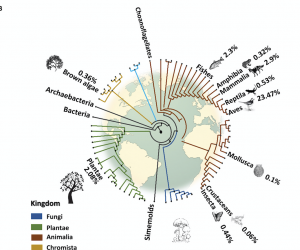
- Science Advances (2021 )
- Authors: Shirin Taheri, Babak Naimi, Carsten Rahbek, Miguel B. Araújo
- Link to article: https://advances.sciencemag.org/content/7/15/eabe1110
Studies have documented climate change–induced shifts in species distributions but uncertainties associated with data and methods are typically unexplored. We reviewed 240 reports of climate-related species-range shifts and classified them based on three criteria. We ask whether observed distributional shifts are compared against random expectations, whether multicausal factors are examined on equal footing, and whether studies provide sufficient documentation to enable replication. We found that only ~12.1% of studies compare distributional shifts across multiple directions, ~1.6% distinguish observed patterns from random expectations, and ~19.66% examine multicausal factors. Last, ~75.5% of studies report sufficient data and results to allow replication. We show that despite gradual improvements over time, there is scope for raising standards in data and methods within reports of climate-change induced shifts in species distribution. Accurate reporting is important because policy responses depend on them. Flawed assessments can fuel criticism and divert scarce resources for biodiversity to competing priorities.